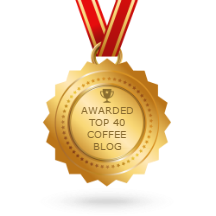A new study authored by Lena Maria Nilsson, conducted at Umea University in the north of Sweden, suggests that women who drink boiled, unfiltered coffee are less likely to get breast cancer. Skeptic that I am regarding health studies, this one caught my eye. On the surface, it seems promising: 64,000 participants were tested, some drinking traditional boiled coffee, some filtered and some none. Several types of cancers were studied and with most, there was no correlation between the groups. But, when it comes to breast cancer, there was a significant drop in breast cancer incidence in the participants who drank traditional, boiled and unfiltered, coffee.
The study goes on to suggest that boiled, unfiltered coffee contains 80 times as much of a coffee-specific fatty acid.
I’m not a doctor, nor are any of the summaries I read written by doctors. The study is said to be published in the Journal of Cancer Causes and Control. I tried to find the actual study on the internet, but as of this writing, it appears to not be available. So, I will confine my comments to what I’ve read and add my own coffee, not medical, analysis.
The headline is, as every coffee aficionado knows, a bit misleading: The boiling of coffee is not what makes the difference, but the filtering. To put it in US consumer language, paper filters remove the helpful fatty acids, while metal filters allow them to remain. In street terms, this means a French press is good, but so is a drip machine using a gold filter. So should be an espresso. The paper in drip methods, likely holds back much if not all these fatty acids. No more Chemex or Bunn brewers.
But, it’s not that easy. A few years back, there was a study that showed increased incidences of high cholesterol using what I’ll term minimally filtered coffee. The study itself, at least on the surface information I could find, is not wholly committal either. While the incidence rose among so-called early breast cancer (under 49), the opposite result appeared among later (over 49) breast cancer, meaning women over 49 had lower rates drinking paper filtered coffee.
Other cancers showed no correlation, which flies in the face of previous speculation that coffee fatty acids were somehow general cancer preventatives.
Note also the doses needed to produce a result. The positive effects were noted only when women drank four cups per day. Are these four, five or six ounce cups? Big gulps? I’m going to assume they are five ounce cups, slightly smaller than US, but still a prodigious amount of brew. My wife is getting that right does, but yours might not be.
At least one question begs to be answered. Is there anything special about boiling (say, temperature) that might make it more efficient at extracting coffee-specific fatty acids?
I’d like to see the coffee industry compare a press pot’s coffee to the simple boiled coffee this research is based on, to see if they really match. The assumption that they will is reasonable, but it is an assumption.
An interesting side note, and one that escaped most reports I’ve seen, is that men studied who drank boiled coffee had increased risks of pancreatic and lung cancers.
All in all, this is interesting news. I hesitate to proclaim coffee as a patent medicine, but the more we see it studied, the better it looks.
See article on web: http://www.sciencedaily.com/releases/2010/06/100615151255.htm


Hi Kevin,
I believe I might have found the study for you.
http://www.springerlink.com/content/vn61542292400431/fulltext.pdf